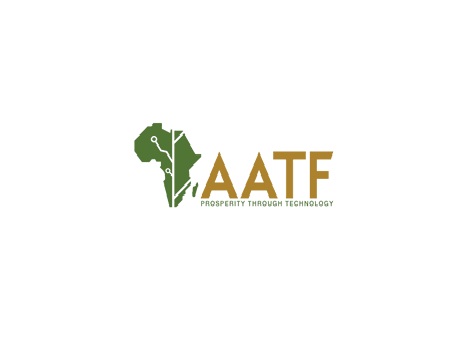The introduction of biotechnology in Africa was accompanied by development of biosafety guidelines by implementing countries to ensure proper regulation of the modern technology.
Nigeria recorded a major breakthrough in its effort to address food insecurity when it signed the biosafety Act into law in 2015 by the then-President Goodluck Jonathan.
With the signing of the Biosafety Act into law, Nigeria established the National Biosafety Management Agency (NBMA) to serve as a body to regulate the deployment and importation of Genetically Modified Organisms (GMOs) into the country.
The immediate past Director-General of the NBMA, Dr Rufus Ebegba, while speaking with Nigerian Tribune, recounted how the African Agricultural Technology Foundation (AATF) played a key role in development of the Nigeria Biosafety Guidelines.
The AATF has been at the forefront championing the deployment of sustainable agricultural technology to advance food production through increasing yield and production of high-quality food.
Ebegba said in the process of developing the country’s biosafety guidelines, the AATF provided technical support and expertise which was instrumental for the passage and signing of the biosafety bill into law.
“When I was the Director General of the NBMA, AATF supported the agency immensely in the area of biosafety conferences, development of guideline and so many other things, even in the development of biosafety bill that later became an Act”, Dr Ebebgba noted.
Currently, Nigeria is one of the leading countries in Africa when it comes to the commercialisation of locally developed genetically modified crops. The NBMA was instrumental in granting environmental release of the crops.
Nigeria has commercialised BT Cotton, the Pod Borer resistant Cowpea, and the recent one, TELA Maize through the support of the AATF and NBMA that provided the guidelines.
Under his watch as the Director General of the NBMA, Dr Ebegba oversaw the environmental release of BT Cotton and PBR Cowpea. This singular action contributed greatly to food production in Nigeria as the crop varieties have been commercially released.
Also, he did not stop at granting environmental release for those crops, he also went ahead to supervise the confined field trials of the transgenic crops to ensure that the standard is maintained.
Having known the importance of training and exposure as he benefited from AATF, Ebegba engaged in frequent training of biosafety officials in order to equip them with the acceptable standard in biosafety management.
Dr Ebegba, also extended the trainings and capacity building to journalists for them to understand biosafety management and how to report accurately issues concerning biosafety and biotechnology
On personal development, Ebegba said that the AATF was instrumental in exposing him to modern biosafety guidelines and through study trips, conferences and seminars.
One of the ways the AATF operated in Nigeria to ensure that their message is driven home is through exposing stakeholders to facts through foreign trips, seminars and conferences both within and outside the country.
Many scientists, farmers, journalists and stakeholders in the agricultural sector have benefited from these educational and eye-opening conferences, trips and seminars facilitated by the AATF.
“My interactions with the AATF dates back more than 10 years, and I can tell you that the AATF actually influenced my career positively. There was a time when I was at the Ministry of Environment, AATF took me and my colleague on study tour to Australia to understudy the Australia biosafety guidelines.
The trip was an eye opener and I really appreciate the AATF for that opportunity. When we came back from Australia, we came back with confidence and impetus to look at the issues of biosafety with expertise. AATF has involved me in a number of capacity building training within and outside the country, I am appreciative to AATF”, Ebegba noted.
Ebegba described the AATF as a gift to Africa because they have supported and are currently supporting deployment of technologies to enhance farmers productivity in Africa.
Nigerian farmers and indeed African farmers are suffering from low yield despite investing their resources and energy in their farms. The farmers sometimes lose hope and abandon their farms for other careers.
The AATF is repositioning food production in Africa through the introduction of farm technologies that will reduce the drudgery in farming and also increase farmers’ yield per hectare. Through the introduction of genetically modified seeds, farmers no longer spend more buying chemicals to spray on their farms.
The genetically modified seeds allow the farmers to spend less in planting while they harvest big because the seeds have been developed to resist devastating pests and insects, and increase yield and nutrients.
“AATF is a gift to Africa. It has supported the technology that has enhanced farmers’ productivity in Africa. AATF has really done well in influencing my career positively. AATF has done very well and I will score them very high in biosafety development in Nigeria”, Dr Ebegba added.
Africa is blessed with arable land, there is the need for governments in the continent to invest in agricultural technologies in order to complement the efforts of AATF, this way, the continent will be on a pathway to food security.
READ ALSO: Rivers crisis: Tell Wike to allow Fubara breathe, Bode George charges Tinubu







